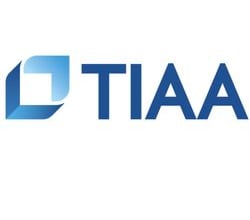Last week I was privileged to moderate a thought leadership webinar on the topic, “The Great Resignation and the Future of Work.” The employee relations (ER) experts who participated on the panel for this webinar were:
- Libby Erensen, VP of People, Spring Health
- Allessandria Polizzi, CEO and Founder, Verdant Consulting
 when 3.8 million workers quit their jobs, and those numbers rose even higher in subsequent months. Libby attributed it to several factors, including social unrest, a reaction to COVID-19, lack of work-life balance, and employees looking to have their expectations better met by new employers.
when 3.8 million workers quit their jobs, and those numbers rose even higher in subsequent months. Libby attributed it to several factors, including social unrest, a reaction to COVID-19, lack of work-life balance, and employees looking to have their expectations better met by new employers.
Here are a few highlights of our warm and thought-provoking discussion:
1. Both panelists spoke about the importance of psychological safety in the workplace – allowing employees to take risks and share openly without fearing career damage. This can apply to ideas they have about their work, but it also means they feel safe sharing how they feel about their workload and hours. Employees may have the sense that their managers expect remote workers to be “always on,” including nights and weekends. Leaders have the responsibility to model appropriate behavior by not sending late night/weekend texts and emails and to respect employees’ time off and boundaries.
2. In terms of strategies for supporting employees, both panelists also spoke to the need for manager training that helps ensure employee mental health and well-being. Post-infectious-disease pandemics, the prevalence of PTSD is 23%, meaning that greater than 1 in 5 people suffers from PTSD to some degree.
Because managers are the “go-to” people for their teams, they need to know what resources are available to help employees when they raise their hands for help. Mental health benefits and resources show strong outcomes for retention, and managers need to know how to simply listen and then guide their people to available resources.
3. And what about HR/ER teams and their mental health? Who do they go to when they need help, and how can organizations retain them so that they don’t become part of the Great Resignation too? The past two years have been a tremendous burden on them as they have dealt with increased workloads, loneliness and compassion fatigue. HR/ER teams need to seek out their own networks for support and encouragement (check out our empowER site below for an amazing community of ER professionals!). They also need to know how to set boundaries, practice self-compassion and treat themselves with kindness, not judgment, remembering that “ER’s every day is most employees’ worst day.”
On the flip side of The Great Resignation, there is what Allessandria called “The Great Integration,” an opportunity for companies to bring in and absorb new talent, while nurturing the great cultures they already have- a chance to get it right from the get-go. For example, effective and mindful onboarding is even more crucial now, so that all new hires joining organizations feel welcomed and included throughout their transitions, making them want to stay and hopefully reversing the trend of resignations confronting so many now.
You can hear a replay of the entire webinar here. I hope you get as much out of listening to it as I did moderating it.
Additional resources
- Join empowER, an online community specifically for ER professionals to share ideas, ask questions and access valuable resources.
- Why ER is Your Greatest Tool During the Great Resignation
- The Sixth Annual Employee Relations Benchmark Study Resources




